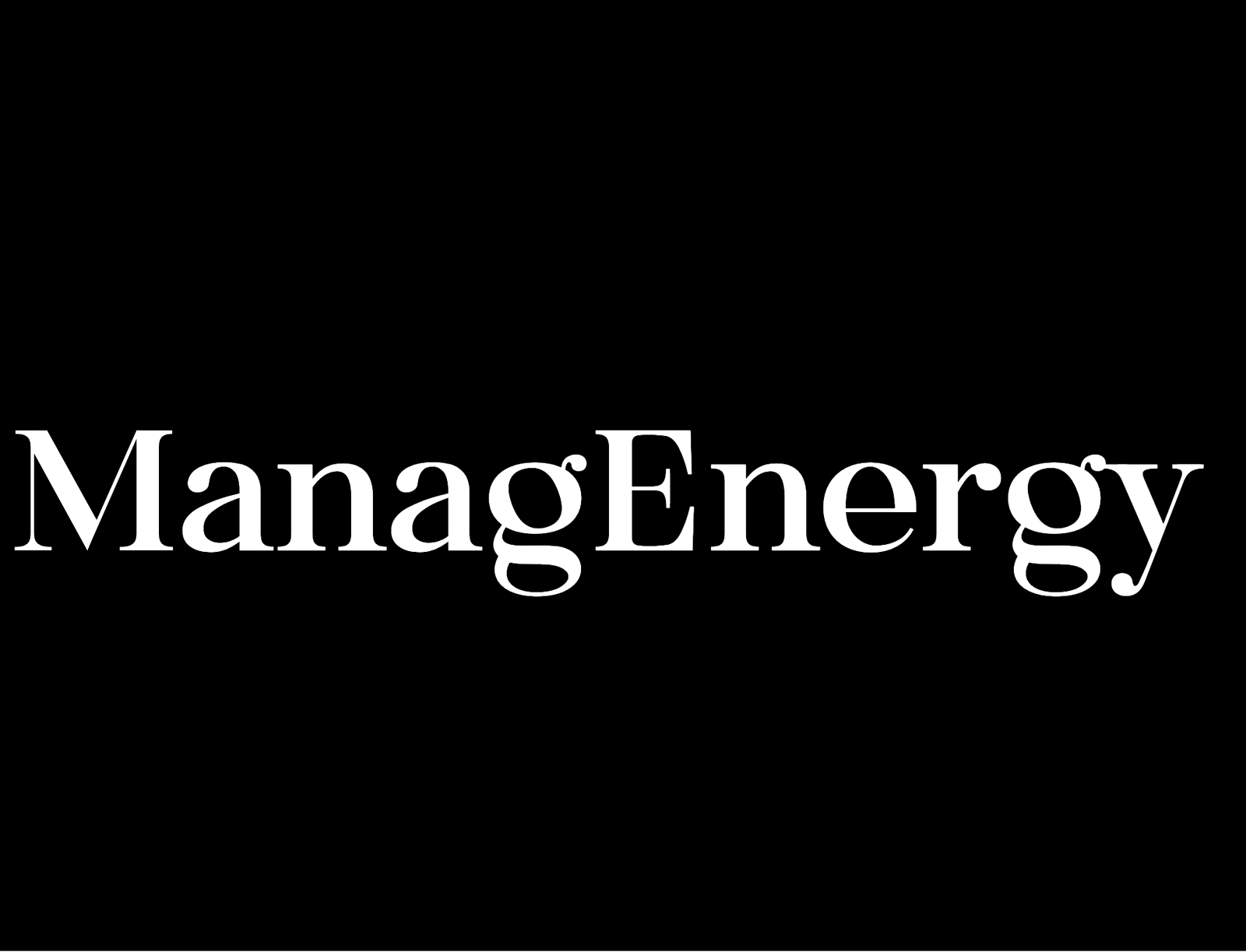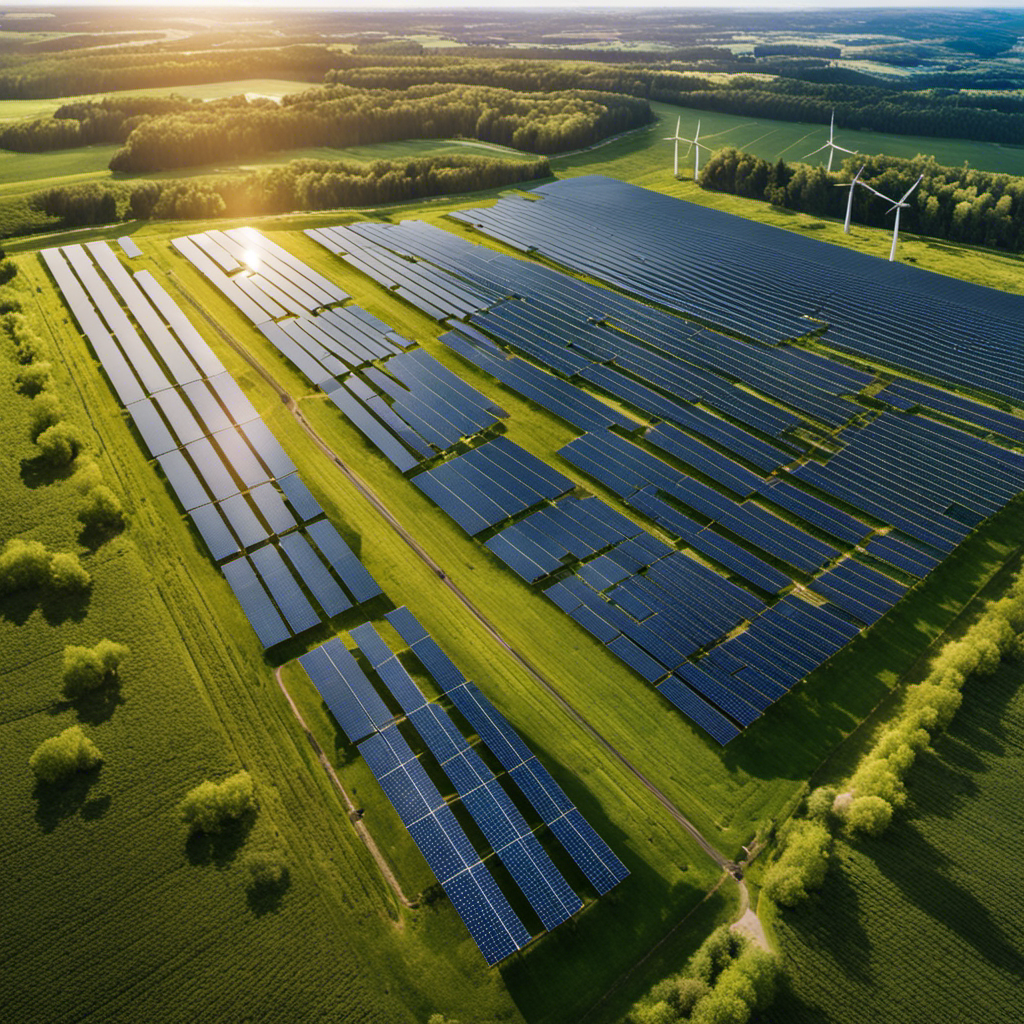Hydrogen Fuel
The Advantages, Potential, and Challenges of Hydrogen Fuel Cell Technology

Hey there! Let’s jump into the intriguing universe of hydrogen fuel cell technology. I have to admit, this technology is pretty awesome. It not only provides a sustainable and renewable energy source, but its byproducts are simply water and heat. How environmentally friendly is that, huh?
With high energy efficiency and the ability to be produced from renewable sources, like water, hydrogen fuel cells have the potential to revolutionize the way we power our homes, businesses, and industries. But, of course, there are some challenges we need to tackle along the way.
So, buckle up and get ready to explore the advantages, potential, and challenges of hydrogen fuel cell technology. It’s gonna be a wild ride!
Key Takeaways
- Hydrogen fuel cells offer clean energy output and sustainability.
- The cost of hydrogen has decreased by 60% in recent years and is expected to fall further.
- Hydrogen fuel cells produce heat and water, considered zero-emission fuel.
- The development of hydrogen fueling infrastructure is crucial for the widespread adoption of hydrogen fuel cells.
Advantages of Hydrogen Fuel Cell Technology
I’m excited about the advantages of hydrogen fuel cell technology. One advantage is its clean energy output, which contributes to reducing greenhouse gas emissions and combating climate change. Another advantage is its high energy efficiency, as hydrogen fuel cells can convert up to 60% of the energy stored in hydrogen into usable electricity. This efficiency is significantly higher than that of traditional combustion engines.
Hydrogen fuel cells also offer cost effectiveness. Hydrogen fuel is abundant and efficient, containing three times more energy than gasoline. Moreover, it costs about $2 per gallon, making it a cost-effective option for powering vehicles and other energy-intensive applications. Additionally, the cost of hydrogen has decreased by 60% in recent years and is expected to continue falling, making it even more affordable in the future.
In terms of sustainability advantages, hydrogen fuel cells can be produced from renewable sources like water. This means that hydrogen can be generated using clean energy sources such as solar or wind power, making it a truly renewable energy option. Furthermore, hydrogen fuel cells have a long lifespan with proper maintenance, reducing the need for frequent replacements. This durability contributes to the overall sustainability of the technology.
Another noteworthy advantage of hydrogen fuel cells is their quiet operation. Unlike traditional combustion engines, fuel cells produce minimal noise, making them suitable for residential, commercial, and industrial use without causing disturbances. This characteristic enhances their versatility and potential for widespread adoption.
Potential Applications of Hydrogen Fuel Cells
One exciting possibility for hydrogen fuel cells is their use in transportation, where they can provide clean and sustainable energy for vehicles. With advancements in technology, hydrogen fuel cells have the potential to revolutionize the automotive industry by offering an alternative to traditional fossil fuel-powered vehicles.
These fuel cells convert hydrogen and oxygen into electricity, generating power for electric motors and emitting only water vapor as a byproduct. This makes them an attractive option for reducing greenhouse gas emissions and combating climate change.
In addition to transportation, hydrogen fuel cells also have potential applications in stationary power generation, portable devices, and even aerospace.
Continued advancements in technology are key to unlocking the full potential of hydrogen fuel cells and expanding their use in various sectors, contributing to a more sustainable future.
Challenges in Implementing Hydrogen Fuel Cell Technology
Addressing the implementation of hydrogen fuel cell technology requires overcoming various obstacles and ensuring the development of a reliable infrastructure. To make this technology more feasible, cost-effective solutions and technological advancements are key.
One major challenge is the high cost of hydrogen production and storage. However, recent technological advancements have resulted in decreasing costs, making hydrogen fuel cells a more competitive alternative.
Additionally, the availability of hydrogen is a significant challenge, but adapting existing infrastructure can help overcome this hurdle. Developing a robust hydrogen infrastructure is crucial for the widespread adoption of hydrogen fuel cells. This requires significant investment, as hydrogen fueling stations need separate hydrogen supplies.
Despite these challenges, the potential benefits of hydrogen fuel cells make it an exciting technology to invest in and develop further.
Environmental Benefits of Hydrogen Fuel Cells
The environmental benefits of hydrogen fuel cells are evident in their zero emissions and reduced carbon footprint. Here are some key advantages of hydrogen fuel cells in terms of the environment:
-
Clean Transportation: Hydrogen fuel cells can be used in various transportation applications, such as cars, buses, and trains. They offer a clean alternative to traditional combustion engines, reducing air pollution and greenhouse gas emissions.
-
Renewable Energy Integration: Hydrogen fuel cells can be integrated with renewable energy sources like solar and wind power. This allows for the storage and utilization of excess renewable energy, promoting a more sustainable energy system.
-
Reduced Dependence on Fossil Fuels: Hydrogen fuel cells help decrease the reliance on fossil fuels for transportation and power generation. By using hydrogen as a fuel, we can reduce the extraction and burning of fossil fuels, leading to a healthier environment and cleaner air.
-
Climate Change Mitigation: The adoption of hydrogen fuel cells in various sectors can contribute to mitigating climate change. By reducing carbon dioxide emissions and other pollutants, hydrogen fuel cells play a vital role in transitioning to a low-carbon economy.
Overall, hydrogen fuel cells offer significant environmental benefits, both in transportation and renewable energy integration. Embracing this technology can contribute to a cleaner and more sustainable future.
Economic Considerations of Hydrogen Fuel Cell Technology
I find it interesting to explore the economic considerations surrounding hydrogen fuel cell technology.
The economic viability and market potential of hydrogen fuel cells are crucial factors in determining their widespread adoption.
Currently, the cost of hydrogen fuel cells is higher compared to other energy sources, such as gasoline or diesel. However, with advancements in technology and economies of scale, the cost is expected to decrease.
Additionally, governments worldwide are investing in hydrogen fuel cell technology, which further promotes its market potential.
As the infrastructure for hydrogen fuel cells continues to develop, the accessibility and availability of hydrogen will increase, leading to a more competitive market.
The potential for hydrogen fuel cells to be used in various sectors, including transportation and power generation, further enhances their market potential.
Overall, while there are economic challenges, the market potential for hydrogen fuel cell technology is promising.
Government Support and Investment in Hydrogen Fuel Cell Technology
In the previous subtopic, we discussed the economic considerations of hydrogen fuel cell technology. Now, let’s shift our focus to the government support and investment in this promising technology.
Governments around the world are recognizing the potential of hydrogen fuel cells and are implementing policies and providing financial incentives to promote their development and adoption.
Here are some key ways in which governments are supporting hydrogen fuel cell technology:
-
Government policies: Governments are implementing policies that encourage the research, development, and deployment of hydrogen fuel cell technology. These policies include setting renewable energy targets, providing grants and subsidies, and creating regulatory frameworks that support the use of hydrogen fuel cells.
-
Financial incentives: Governments are offering financial incentives to encourage the adoption of hydrogen fuel cell technology. These incentives can take the form of tax credits, grants, and low-interest loans, making it more affordable for companies and individuals to invest in hydrogen fuel cells.
-
Research and development funding: Governments are investing in research and development programs to advance hydrogen fuel cell technology. This funding supports innovation and helps overcome technical challenges, leading to improvements in efficiency, cost-effectiveness, and safety.
-
Infrastructure development: Governments are also investing in the development of hydrogen infrastructure, including hydrogen production, storage, and distribution facilities. This infrastructure is essential for the widespread adoption of hydrogen fuel cell technology and ensures its accessibility to users.
Overall, government support and investment play a crucial role in the advancement of hydrogen fuel cell technology. These initiatives create a favorable environment for research, development, and commercialization, promoting the transition towards a sustainable and clean energy future.
Infrastructure Development for Hydrogen Fuel Cell Technology
Developing a reliable and efficient infrastructure is crucial for the widespread adoption of hydrogen fuel cell technology. One key aspect of this infrastructure is the establishment of hydrogen fueling stations. These stations are essential for providing a convenient and accessible refueling option for hydrogen fuel cell vehicles.
Currently, the availability of hydrogen fueling stations is limited, which poses a challenge for the widespread use of hydrogen fuel cell technology. However, efforts are underway to expand the network of hydrogen fueling stations and improve their accessibility.
The development of a comprehensive hydrogen fuel cell infrastructure requires significant investment and coordination between various stakeholders. It is an important step towards creating a sustainable and viable alternative to traditional fossil fuel-based transportation.
Efficiency and Performance of Hydrogen Fuel Cells
Improving the efficiency and performance of hydrogen fuel cells is crucial for their widespread adoption as a clean and sustainable energy source. To optimize their efficiency and performance, the following steps can be taken:
-
Enhancing Catalysts: Developing more efficient catalysts can improve the kinetics of the chemical reactions within the fuel cell, leading to higher conversion rates and improved overall efficiency.
-
Reducing Resistance: Minimizing internal resistance within the fuel cell can increase the flow of electrons, allowing for more efficient electricity generation.
-
Increasing Operating Temperatures: Operating at higher temperatures can enhance the electrochemical reactions and improve the efficiency of the fuel cell.
-
Improving Water Management: Efficient management of water within the fuel cell can prevent flooding or drying out, ensuring optimal performance.
Safety Concerns and Regulations for Hydrogen Fuel Cell Technology
Addressing safety concerns and implementing regulations is crucial for ensuring the widespread adoption of hydrogen fuel cell technology. Safety regulations are essential to protect individuals and the environment from potential hazards associated with hydrogen. One important aspect is the safe storage of hydrogen. Proper storage methods, such as high-pressure tanks or solid-state storage materials, must be in place to prevent leaks or explosions. To emphasize the importance of safety regulations and hydrogen storage, the following table provides an overview of key considerations:
| Safety Concerns | Regulations | Hydrogen Storage |
|---|---|---|
| Risk of leakage or fires | Strict safety standards | High-pressure tanks |
| Potential for explosions | Inspection requirements | Solid-state materials |
| Health hazards | Training and education | Proper ventilation |
Future Outlook and Potential of Hydrogen Fuel Cell Technology
Now that we have discussed the safety concerns and regulations surrounding hydrogen fuel cell technology, let’s shift our focus to the future outlook and potential of this innovative technology.
The future advancements and technological breakthroughs in hydrogen fuel cells hold great promise for a sustainable and clean energy future. Here are some key points to consider:
-
Increased Efficiency: Ongoing research and development efforts aim to improve the efficiency of hydrogen fuel cells, making them even more energy-efficient and cost-effective.
-
Enhanced Durability: Scientists are working on developing more durable fuel cell materials and designs, which will extend the lifespan of fuel cells and reduce maintenance requirements.
-
Hydrogen Production Methods: Advancements in hydrogen production methods, such as advanced electrolysis techniques and renewable energy integration, will contribute to the widespread availability of hydrogen fuel.
-
Integration with Renewables: The integration of hydrogen fuel cells with renewable energy sources, such as wind and solar power, will further enhance the sustainability and reliability of the technology.
With these future advancements and technological breakthroughs, hydrogen fuel cell technology has the potential to revolutionize various sectors, including transportation, power generation, and industrial applications.
It is an exciting time for the future of hydrogen fuel cells, as we continue to explore their full potential and work towards a greener and more sustainable future.
Frequently Asked Questions
How Does the Efficiency of Hydrogen Fuel Cells Compare to Other Renewable Energy Technologies?
The efficiency of hydrogen fuel cells compared to other renewable energy technologies can vary.
In terms of energy conversion efficiency, hydrogen fuel cells are generally more efficient than solar energy technologies.
However, when considering the overall efficiency of the energy system, integration with existing energy infrastructure is crucial.
Solar energy technologies have the advantage of being easily integrated into existing electricity grids, whereas hydrogen fuel cells require dedicated infrastructure for hydrogen production, storage, and distribution.
Therefore, the efficiency of hydrogen fuel cells must be evaluated in the context of the entire energy system.
Are There Any Potential Negative Environmental Impacts Associated With Hydrogen Fuel Cell Technology?
There are potential hazards and environmental risks associated with hydrogen fuel cell technology. One concern is the production of hydrogen, which currently relies on fossil fuels and can contribute to carbon emissions.
Additionally, if hydrogen leaks, it can be highly flammable and pose safety risks. However, advancements are being made to address these issues, such as developing renewable methods for hydrogen production and improving safety measures.
It’s important to continue research and development to minimize any negative environmental impacts and ensure the safe use of hydrogen fuel cells.
What Are Some Specific Applications for Hydrogen Fuel Cells Beyond Transportation?
Hydrogen fuel cells have a range of applications beyond transportation. In the industrial sector, they can be used for backup power in data centers, where reliability is crucial.
They can also be employed forklifts, providing a clean and efficient alternative to traditional batteries.
Additionally, hydrogen fuel cells can be utilized for stationary power generation, offering a sustainable and reliable source of electricity.
These applications demonstrate the versatility and potential of hydrogen fuel cells in various industries.
How Does the Cost of Hydrogen Fuel Cells Compare to Other Alternative Energy Sources?
When comparing the cost of hydrogen fuel cells to other alternative energy sources, it’s important to consider their cost effectiveness.
While hydrogen fuel cells may have initially higher costs, they offer advantages such as long lifespan and high energy efficiency.
Additionally, the decreasing costs of hydrogen production and the increasing accessibility of infrastructure make hydrogen fuel cells a competitive alternative.
As the technology continues to develop, the cost of hydrogen fuel cells is expected to become more comparable to other energy sources, making them a viable option for clean and sustainable power generation.
Are There Any Safety Concerns or Regulations Specific to the Use of Hydrogen Fuel Cell Technology?
Safety concerns and regulations surrounding hydrogen fuel cell technology are crucial for its widespread adoption. While hydrogen is a highly flammable gas, safety measures, such as proper storage and handling protocols, can mitigate risks. Additionally, regulations ensure that hydrogen fuel cells meet safety standards and are properly integrated into various applications.
It is important to note that hydrogen fuel cells have a strong safety record and are continuously improving in terms of efficiency and environmental impact. Cost comparison with other alternative energy sources further highlights the potential of hydrogen fuel cells.
Conclusion
In conclusion, hydrogen fuel cell technology holds tremendous potential as a clean and renewable energy source. Its numerous advantages, including zero emissions, high energy efficiency, and long lifespan, make it an attractive option for various applications.
However, challenges such as cost-efficient production and storage must be addressed. Additionally, the development of a reliable and efficient hydrogen infrastructure is crucial for widespread adoption.
By overcoming these challenges and improving the technology, hydrogen fuel cells can play a vital role in reducing our reliance on fossil fuels and creating a cleaner and more sustainable future.
Hydrogen Fuel
The Role of Anode in Hydrogen Fuel Cells: Implications for Efficiency and Performance

As the old adage goes, ‘knowledge is power.’ In the realm of hydrogen fuel cells, comprehending the function of the anode is crucial for harnessing their full capabilities.
With its ability to determine efficiency and performance, the anode plays a crucial role in the world of fuel cell technology. Factors like polarization state and overpotential can influence the rate of hydrogen absorption onto the anode electrode. Slow hydrogen adsorption can limit overall fuel cell rates and increase anode resistance, affecting the impedance spectrum.
However, despite the challenges of cost and infrastructure, hydrogen fuel cells offer reliability and environmental-friendliness.
Join me as we delve into the implications of the anode on efficiency and performance in hydrogen fuel cells.
Key Takeaways
- The rate of hydrogen absorption onto the anode is a key parameter in hydrogen fuel cells.
- Slow hydrogen adsorption can limit the overall rate of the fuel cell.
- The anode’s resistance increases as hydrogen is absorbed, affecting the impedance spectrum.
- High current density causes a shift in the cell’s impedance, affecting the anode’s surface coverage.
Anode Reaction Rate and Hydrogen Fuel Cells
The rate at which the anode reacts is crucial in hydrogen fuel cells, as it directly impacts the efficiency and performance of the cell. Anode performance optimization is a key area of research in the field of hydrogen fuel cells.
Scientists and engineers are continually exploring new anode materials and improving the reaction kinetics to enhance the overall performance of the fuel cell. The goal is to increase the rate of hydrogen absorption onto the electrode, which can be influenced by factors such as polarization state and overpotential.
Slow hydrogen adsorption can limit the overall rate of the fuel cell, leading to decreased efficiency. By conducting extensive anode materials research, scientists aim to develop materials that can facilitate faster and more efficient hydrogen adsorption, ultimately improving the performance of hydrogen fuel cells.
Influences on Hydrogen Absorption by the Anode
When it comes to the anode in hydrogen fuel cells, one key factor that affects the rate of hydrogen absorption is the polarization state and overpotential.
The influence of polarization state on hydrogen absorption:
- A higher polarization state leads to a slower rate of hydrogen absorption onto the anode.
- This is because a high polarization state increases the resistance at the anode, hindering the adsorption process.
- The polarization state is influenced by factors such as the current density and the cell’s impedance.
- Optimizing the polarization state can enhance the performance of the anode and improve the overall efficiency of the fuel cell.
The impact of overpotential on anode performance:
- Overpotential refers to the excess voltage required to drive the desired electrochemical reaction at the anode.
- A higher overpotential can increase the rate of hydrogen absorption onto the anode.
- However, excessive overpotential can lead to energy losses and reduce the overall efficiency of the fuel cell.
- Balancing the overpotential is crucial to ensure optimal performance and maximize the hydrogen absorption rate at the anode.
Limitations of Slow Hydrogen Adsorption
Optimizing the polarization state and overpotential improves the rate of hydrogen absorption onto the anode in hydrogen fuel cells. Slow hydrogen adsorption can pose limitations on the overall rate of the fuel cell, which has significant implications for fuel cell performance and efficiency.
When the hydrogen adsorption rate is slow, it can lead to reduced power output and decreased efficiency of the fuel cell system. The anode’s resistance increases as hydrogen is absorbed, affecting the impedance spectrum. High current density can also cause a shift in the cell’s impedance, which in turn affects the anode’s surface coverage.
Therefore, addressing the limitations of slow hydrogen adsorption is crucial to enhance the performance and efficiency of hydrogen fuel cells.
Impact of Anode Resistance on Fuel Cell Efficiency
Addressing the issue of anode resistance is crucial to enhance the overall effectiveness and productivity of hydrogen fuel cells. The impact of anode material on fuel cell efficiency is an area of significant research. The choice of anode material can greatly affect the performance of the fuel cell. Different materials have different catalytic properties, which can influence the rate at which the fuel cell converts hydrogen into electricity.
Additionally, the effect of temperature on anode performance is another important consideration. Higher temperatures can improve the kinetics of the electrochemical reactions taking place at the anode, leading to higher cell efficiencies. However, excessive temperature can also lead to degradation of the anode material. Therefore, finding the optimal temperature range is crucial for maximizing the efficiency of the fuel cell.
Overall, understanding the impact of anode material and temperature on fuel cell performance is essential for developing more efficient and reliable hydrogen fuel cells.
High Current Density Effects on Anode Surface Coverage
I observed that high current density causes a shift in the impedance spectrum of the cell, which directly affects the coverage of the anode’s surface. This shift in impedance has significant effects on the performance of the anode in hydrogen fuel cells.
When the current density is high, the anode’s surface coverage is reduced, leading to a decrease in its efficiency. This reduction in efficiency can have implications for the overall fuel cell efficiency as well.
It is crucial to understand and mitigate the effects of high current density on anode performance to ensure optimal fuel cell operation. Further research is necessary to develop strategies to improve anode performance under high current density conditions and enhance fuel cell efficiency.
Cost and Affordability of Hydrogen Fuel Cells
The cost of hydrogen fuel cells has been decreasing and is expected to continue falling, making them more affordable and accessible for various applications. This cost effectiveness of hydrogen fuel cells compared to other energy sources is a key factor in their potential to revolutionize the transportation industry.
Here are four reasons why hydrogen fuel cells have the potential to transform transportation:
-
Versatility: Hydrogen fuel cells can be used in a wide range of vehicles, from cars to buses and even trucks. This versatility makes them suitable for various transportation needs.
-
Longer Range: Hydrogen-powered vehicles can travel longer distances compared to battery-powered electric vehicles. This extended range is crucial for industries that rely on transportation, such as logistics and delivery services.
-
Fast Refueling: Refueling hydrogen fuel cells is as quick as refueling traditional gasoline vehicles, taking only a few minutes. This fast refueling time eliminates the long charging periods associated with electric vehicles.
-
Zero Emissions: Hydrogen fuel cells produce zero emissions, making them an environmentally friendly alternative to fossil fuel-powered vehicles. This reduction in greenhouse gas emissions can contribute to a cleaner and healthier environment.
Advantages and Decreasing Cost of Hydrogen Fuel Cells
In the previous subtopic, we discussed the cost and affordability of hydrogen fuel cells. Despite the initial investment, hydrogen fuel cells have advantages such as reliability and environmental-friendliness. Now, let’s delve into the advantages and decreasing cost of hydrogen fuel cells, particularly in transportation.
One of the primary advantages of hydrogen fuel cells in transportation is their long range. Hydrogen-powered vehicles, such as trucks, can travel over 380 miles, which is three times further than battery-powered electric vehicles. This extended range makes hydrogen fuel cells suitable for long-haul transportation and reduces the need for frequent refueling.
Another advantage is the decreasing cost of hydrogen production. The cost of hydrogen fuel cells has been declining over the years and is expected to continue falling. This reduction in cost is mainly attributed to advancements in technology and the scaling up of production. As the cost of hydrogen production decreases, it becomes more economically viable for widespread adoption in the transportation sector.
| Advantages of Hydrogen Fuel Cells in Transportation | Decreasing Cost of Hydrogen Production |
|---|---|
| Extended range for long-haul transportation | Declining cost due to technological advancements |
| Reduced need for frequent refueling | Economically viable for widespread adoption |
| Lower greenhouse gas emissions | Scaling up of production contributes to cost reduction |
Range and Applications of Hydrogen Fuel Cells
One advantage of hydrogen fuel cells in transportation is their ability to power multiple vehicles and larger vehicles like buses.
Range and Applications of Hydrogen Fuel Cells:
- General Motors is developing hydrogen fuel cells for fast-charging electric vehicles.
- Hydrogen fuel cells can generate electricity through chemical reactions with no emissions.
- Hydrogen-powered trucks can travel over 380 miles, three times further than battery-powered EVs.
- Hydrogen fuel cells can be used to power multiple vehicles and larger vehicles like buses.
Hydrogen fuel cells have a wide range of applications in transportation. From cars to trucks and buses, these fuel cells provide a clean and efficient source of power. With the ability to generate electricity through chemical reactions, hydrogen fuel cells offer a viable alternative to traditional combustion engines.
Not only do they produce no emissions, but they also have a longer range compared to battery-powered electric vehicles. This makes them suitable for long-distance travel and heavy-duty applications. Additionally, hydrogen fuel cells can be used to power multiple vehicles, making them a versatile solution for transportation needs.
Frequently Asked Questions
How Does the Anode Reaction Rate Affect the Overall Efficiency of a Hydrogen Fuel Cell?
The anode reaction rate plays a crucial role in determining the overall efficiency of a hydrogen fuel cell.
The rate at which the anode catalyst facilitates the oxidation of hydrogen directly affects the power output and performance of the fuel cell.
Faster anode reaction kinetics result in higher efficiency and improved cell performance.
Understanding and optimizing the anode reaction rate is essential for maximizing the efficiency and effectiveness of hydrogen fuel cells.
What Are the Factors That Influence the Absorption of Hydrogen by the Anode?
Factors that influence the absorption of hydrogen by the anode include anode composition and temperature effects. The anode’s composition determines its ability to facilitate the reaction between hydrogen and the electrode surface.
Temperature also plays a crucial role, as higher temperatures enhance the rate of hydrogen absorption.
These factors directly impact the overall efficiency and performance of a hydrogen fuel cell, making it essential to understand and optimize the anode’s characteristics for improved functionality.
What Are the Limitations of Slow Hydrogen Adsorption on the Overall Performance of a Fuel Cell?
The limitations of slow hydrogen adsorption on the overall performance of a fuel cell are significant. The rate of the anode reaction directly affects the efficiency of the fuel cell. When hydrogen adsorption is slow, it can limit the overall rate of the fuel cell, reducing its performance.
This slower rate of adsorption can also lead to an increase in the anode’s resistance, affecting the impedance spectrum. Therefore, improving the rate of hydrogen adsorption is crucial for enhancing fuel cell efficiency.
How Does the Increase in Anode Resistance Due to Hydrogen Absorption Affect the Efficiency of a Fuel Cell?
When the anode resistance increases due to hydrogen absorption, it can have a significant impact on the efficiency of a fuel cell. This is because the anode plays a crucial role in the electrochemical reactions that occur within the fuel cell.
The increased resistance can lead to a decrease in the overall performance of the fuel cell, affecting its efficiency and power output. Additionally, the increase in anode resistance can also contribute to anode corrosion and degradation of the anode catalyst, further impacting the performance of the fuel cell.
What Are the Effects of High Current Density on the Surface Coverage of the Anode in a Hydrogen Fuel Cell?
High current density in a hydrogen fuel cell can significantly affect the surface coverage of the anode. The increased current flow leads to electrochemical reactions occurring at a higher rate, which can alter the anode’s surface morphology.
This change in surface morphology can impact the efficiency and performance of the fuel cell, as it can affect the rate of hydrogen absorption and the overall reaction kinetics.
Understanding the effects of high current density on the anode is crucial for optimizing the performance of hydrogen fuel cells.
Conclusion
In conclusion, the role of the anode in hydrogen fuel cells is crucial for determining their efficiency and performance. Factors such as polarization state and overpotential influence the rate of hydrogen absorption onto the anode electrode. Slow hydrogen adsorption can limit the overall rate of the fuel cell, leading to increased resistance and impedance.
Despite the challenges of cost and infrastructure, hydrogen fuel cells offer numerous advantages such as reliability and environmental-friendliness. With decreasing costs and efforts to promote locally produced clean hydrogen, the future of hydrogen fuel cells looks promising.
Hydrogen Fuel
The Power of Hydrogen: Fuel Cells and Environmental Advantages

I have always been captivated by the possibilities presented by hydrogen fuel cells. The concept of producing electricity from a clean and plentiful resource such as hydrogen is indeed extraordinary.
However, there are some challenges that we need to overcome. The high cost of fuel cells has limited their accessibility, but it’s expected to decrease in the coming years. There are also concerns about the reliability and infrastructure of fuel cell technology.
Despite these obstacles, I believe that with the right support and regulations, hydrogen fuel cells can play a major role in our transition to a more sustainable future.
Key Takeaways
- Hydrogen fuel cells use a chemical reaction between hydrogen and oxygen to generate electricity.
- Hydrogen is a clean and environmentally friendly fuel source that can be produced using renewable sources.
- The cost of hydrogen fuel cells is currently high, but is expected to decrease in the future.
- Hydrogen fuel cells are fragile and sensitive to environmental conditions, and infrastructure for refueling is limited.
The Basics of Hydrogen Fuel Cells
I find it fascinating how hydrogen fuel cells work by using a chemical reaction between hydrogen and oxygen to generate electricity.
Hydrogen fuel cell efficiency is impressive, as they have the potential to convert up to 60% of the energy contained in hydrogen into electricity. This makes them more efficient than traditional combustion engines.
The applications of hydrogen fuel cells are vast, ranging from powering vehicles to providing electricity for buildings and even spacecraft. They offer a clean and sustainable alternative to fossil fuels, as they produce only water vapor as a byproduct.
Additionally, hydrogen fuel cells have the potential to reduce greenhouse gas emissions and combat climate change.
With advancements in technology and infrastructure development, the adoption of hydrogen fuel cells is steadily increasing, leading to a more sustainable and environmentally friendly future.
Environmental Benefits of Hydrogen Fuel Cells
Using renewable sources to produce hydrogen fuel can help reduce emissions and promote a cleaner environment.
Hydrogen fuel cells have the potential to be highly efficient, converting chemical energy into electricity with minimal waste. This efficiency can lead to a significant decrease in greenhouse gas emissions compared to traditional fossil fuel-powered technologies.
However, it is important to consider the environmental impact of hydrogen production. While hydrogen itself is a clean fuel source, the methods used to produce it can vary. Currently, the majority of hydrogen production relies on fossil fuels, which contribute to carbon dioxide emissions.
To fully realize the environmental benefits of hydrogen fuel cells, it is crucial to prioritize the use of renewable energy sources for hydrogen production. This will ensure a sustainable and environmentally friendly future for the hydrogen fuel industry.
Renewable Sources for Hydrogen Production
Renewable sources, such as solar and wind power, can be utilized to produce hydrogen for fuel cell technology. One of the most common renewable hydrogen production methods is electrolysis, which involves using an electrical current to split water molecules into hydrogen and oxygen.
Solar power can play a crucial role in this process by providing the necessary electricity. Solar panels can convert sunlight into electricity, which can then be used for electrolysis. This method not only produces clean hydrogen but also helps reduce our dependence on fossil fuels.
Additionally, solar power is abundant and widely available, making it a sustainable and reliable source for renewable hydrogen production. By harnessing the power of the sun, we can contribute to a greener and more sustainable future.
Zero Emissions: Hydrogen Fuel Cell Vehicles
Solar panels generate electricity, which can be used to power vehicles equipped with hydrogen fuel cell technology, resulting in zero emissions. The efficiency of hydrogen fuel cells has significantly improved in recent years due to advancements in technology. These advancements have focused on improving the catalysts used in the fuel cells, enhancing the durability and performance of the membranes, and increasing the overall system efficiency. The table below highlights some of the recent advancements in hydrogen fuel cell technology:
| Advancements | Description |
|---|---|
| Catalysts | New catalyst materials, such as platinum nanoparticles, have been developed to improve the efficiency of the hydrogen oxidation and oxygen reduction reactions in fuel cells. |
| Membranes | Proton exchange membranes (PEMs) have been enhanced to increase their durability and conductivity, leading to improved fuel cell performance. |
| System Efficiency | Integrated systems, such as hybrid fuel cell-battery systems, have been developed to optimize the overall efficiency of hydrogen fuel cell vehicles. |
| Fuel Cell Stack | Stack designs have been improved to increase power output and reduce the size and weight of fuel cell systems. |
These advancements in hydrogen fuel cell technology have the potential to make fuel cell vehicles more efficient, reliable, and affordable in the future. However, further research and development are still needed to overcome challenges such as cost, infrastructure, and public perception.
The Cost Dilemma: Hydrogen Fuel Cells
I can’t help but consider the financial implications of hydrogen fuel cells. Currently, the high cost of hydrogen fuel cells makes them unaffordable for the average consumer.
The current cost of hydrogen fuel is $16 per kilogram, which contributes to the overall expensive nature of fuel cells. However, there is hope for future cost reductions. Experts predict that the cost of hydrogen fuel cells could decrease by as much as 35 percent over the next decade.
As the renewable energy industry continues to grow and advancements are made in hydrogen production and distribution, we can expect the affordability of fuel cells to improve. These future cost reductions will be crucial in making hydrogen fuel cells a more viable and accessible option for consumers, leading to wider adoption and a greener future.
Future Price Reductions for Hydrogen Fuel Cells
The decreasing cost of hydrogen fuel cells will make them more accessible to consumers in the future. As technology continues to advance, we can expect to see future advancements and technological improvements that will drive down the cost of hydrogen fuel cells. This will have several significant implications:
-
Increased affordability: With lower costs, more consumers will be able to afford hydrogen fuel cells, leading to wider adoption and usage.
-
Environmental benefits: Hydrogen fuel cells offer clean and emission-free energy, making them an attractive option for reducing carbon emissions and combating climate change.
-
Energy independence: As the cost of hydrogen fuel cells decreases, it will become a more viable alternative to traditional energy sources, allowing for greater energy independence and sustainability.
Overall, the future price reductions for hydrogen fuel cells will pave the way for a greener and more sustainable energy future.
Understanding the Cost of Hydrogen Fuel
One important factor to consider when discussing the cost of hydrogen fuel is the energy content of the fuel being generated. The cost effectiveness of hydrogen fuel cells in the long run depends on the amount of energy produced by the fuel cells. To analyze the economic viability of hydrogen fuel as an alternative energy source, we need to evaluate the cost per unit of energy. Currently, the cost of hydrogen fuel is $16 per kilogram. However, this cost can vary depending on the efficiency of the fuel cells and the source of the hydrogen. It is expected that as the renewable energy industry grows and more efficient fuel cells are developed, the cost of hydrogen fuel cells will decrease. This will make hydrogen fuel more affordable and economically viable in the long run.
| Cost of Hydrogen Fuel | |
|---|---|
| Today | $16 per kilogram |
| Future | Expected to decrease by as much as 35% over the next decade |
| Factors | Efficiency of fuel cells and source of hydrogen |
| Importance | Cost per unit of energy |
Reliability Concerns With Hydrogen Fuel Cells
To ensure the reliability of hydrogen fuel cells, it is crucial to address their sensitivity to environmental conditions and limitations in high humidity or high-temperature environments. Hydrogen fuel cells require proper maintenance and care to function efficiently. Here are three key considerations for hydrogen fuel cell maintenance and efficiency:
-
Regular inspections: Conducting routine inspections can help identify any potential issues or damages to the fuel cell system. This includes checking for leaks, corrosion, and ensuring proper connections.
-
Contamination prevention: Preventing contamination is essential for maintaining the efficiency of hydrogen fuel cells. This involves keeping the fuel cell system clean and free from dust, dirt, and other particles that can hinder its performance.
-
Temperature and humidity control: Maintaining optimal temperature and humidity levels is critical for the reliable operation of hydrogen fuel cells. Extreme temperature conditions or high humidity can negatively impact their efficiency and overall performance.
Fragility and Environmental Sensitivity of Fuel Cells
In the previous subtopic, we discussed the reliability concerns associated with hydrogen fuel cells. Now, let’s delve into the fragility and environmental sensitivity of fuel cells. Fuel cell durability is a crucial factor in determining their long-term viability and effectiveness. These cells are sensitive to environmental conditions, such as temperature and contamination. High humidity and extreme temperatures can impair their performance, making them unreliable in certain settings. Additionally, the production of fuel cells has an environmental impact. The manufacturing process requires the use of materials like platinum, which is a limited resource with potential ecological consequences. To better understand the significance of these aspects, let’s examine the table below, which highlights the environmental impact of fuel cell production.
| Environmental Impact | Description |
|---|---|
| Resource Depletion | Use of limited resources such as platinum in fuel cell production |
| Emissions | Production processes may release greenhouse gases and other pollutants |
| Waste Generation | Disposal of used fuel cells can contribute to electronic waste |
| Energy Consumption | Manufacturing requires energy, potentially from non-renewable sources |
| Water Usage | Water is needed for various manufacturing processes, leading to potential water scarcity |
The Unreliable Nature of Hydrogen as an Energy Source
I have personally experienced the unreliable nature of hydrogen as an energy source due to its sensitivity to environmental conditions and limited availability.
Hydrogen fuel cells, while promising, have their limitations.
-
Unreliable in harsh environments: Hydrogen fuel cells are fragile and sensitive to factors like temperature and contamination. They are not reliable in high humidity or high-temperature environments.
-
Limited availability: Hydrogen is mainly derived from methane, which emits greenhouse gases. Additionally, the infrastructure for hydrogen fuel cell refueling is limited, posing challenges and safety concerns.
-
Dependence on fossil fuels: Hydrogen fuel cells require electricity derived from fossil fuels, reducing their environmental benefits. As a result, the use of hydrogen as an energy source is not as sustainable as initially envisioned.
These limitations highlight the need for further research and development to overcome the challenges associated with hydrogen as an energy source.
Challenges With Fossil Fuel-Derived Electricity for Fuel Cells
One challenge with relying on fossil fuel-derived electricity for fuel cells is the negative impact it has on air quality and contributes to climate change. Fossil fuels, such as coal and natural gas, release harmful pollutants when burned to generate electricity. These pollutants, including carbon dioxide, sulfur dioxide, and nitrogen oxides, contribute to air pollution, smog formation, and climate change.
The combustion of fossil fuels also releases greenhouse gases, which trap heat in the atmosphere and contribute to global warming. This environmental impact contradicts the goal of using fuel cells as a clean and sustainable energy source.
To overcome this challenge, it is crucial to transition to renewable energy sources, such as solar and wind power, to generate electricity for fuel cells. By reducing our reliance on fossil fuels, we can mitigate the environmental impact and achieve a cleaner and more sustainable energy future.
Infrastructure Limitations and Safety Concerns
Lack of adequate infrastructure and safety concerns pose significant challenges for the widespread adoption of hydrogen fuel cell technology. Without a well-developed infrastructure, it becomes difficult to establish a reliable and convenient network of refueling stations for hydrogen-powered vehicles. Additionally, safety regulations need to be established and enforced to ensure the safe handling and storage of hydrogen.
Infrastructure expansion: The limited availability of hydrogen refueling stations hinders the widespread use of hydrogen fuel cell vehicles. Expanding the infrastructure to include more refueling stations would make hydrogen more accessible and convenient for consumers.
Safety regulations: Establishing comprehensive safety regulations is crucial to address concerns regarding the transportation, storage, and usage of hydrogen. This would help build public confidence in the safety of hydrogen fuel cell technology.
Public awareness and education: Educating the public about the benefits and safety measures associated with hydrogen fuel cell technology is essential. This will help dispel any misconceptions or fears surrounding its use and promote its wider acceptance.
To overcome these challenges, governments, industry stakeholders, and regulatory bodies must collaborate to invest in infrastructure expansion and develop robust safety regulations. Only through these efforts can the full potential of hydrogen fuel cell technology be realized.
By-products and Challenges of Hydrogen Fuel Cells
To store and transport hydrogen in large quantities, it is challenging due to its low energy density, which requires cryogenic temperatures and higher pressures. This poses storage limitations and safety considerations.
Hydrogen has a low energy density, meaning it takes up a lot of space to store a small amount of energy. To overcome this, hydrogen is often compressed at high pressures or cooled to cryogenic temperatures. However, these methods increase the risk of leaks or explosions, requiring strict safety measures. To emphasize this point, here is a table:
| Storage Method | Advantages |
|---|---|
| Compression | Increased energy density, easier transportation |
| Cryogenic | Higher storage capacity, longer shelf life |
| Safety Measures | Prevent leaks, reduce explosion risks |
Addressing Public Perception and Regulatory Support
I believe addressing public perception and gaining regulatory support are crucial in promoting the use of hydrogen fuel cells. To achieve this, there are several key strategies that can be implemented:
-
Promoting awareness through education and outreach: By providing accurate and accessible information about hydrogen fuel cells, we can dispel misconceptions and increase public understanding of their benefits. This can be done through educational campaigns, workshops, and online resources.
-
Advocating for policies and incentives to encourage hydrogen adoption: It’s important to engage with policymakers and advocate for favorable regulations and incentives that support the growth of the hydrogen industry. This can include tax credits, grants, and infrastructure investments that make hydrogen fuel cells more accessible and economically viable.
-
Collaborating with industry stakeholders: Building partnerships with automakers, energy companies, and research institutions can help drive innovation, improve technology, and establish a strong network for the production and distribution of hydrogen fuel.
Frequently Asked Questions
How Do Hydrogen Fuel Cells Work to Generate Electricity?
Hydrogen fuel cells work by using electrochemical reactions to generate electricity. In a fuel cell, hydrogen undergoes oxidation at the anode, releasing electrons and creating hydrogen ions. These ions then travel through a proton exchange membrane to reach the cathode.
At the cathode, oxygen combines with the hydrogen ions and electrons from an external circuit to produce electricity. Catalysts are used to speed up these reactions.
Overall, hydrogen fuel cells convert the chemical energy of hydrogen into electrical energy.
What Are the Environmental Benefits of Using Hydrogen as a Fuel Source?
The environmental benefits of using hydrogen as a fuel source include its clean and emission-free nature. Hydrogen can be produced using renewable sources, making it a sustainable fuel option.
However, there are challenges related to hydrogen infrastructure and storage. The limited infrastructure for hydrogen fuel cell refueling and the need to store hydrogen at cryogenic temperatures and higher pressures complicate its transport.
These challenges need to be addressed to fully realize the environmental advantages of hydrogen as a fuel source.
How Is Hydrogen Produced Using Renewable Sources?
Renewable hydrogen production has seen advancements in electrolysis technology. Electrolysis is a process that uses an electrical current to split water into hydrogen and oxygen. By passing an electrical current through water, renewable sources such as solar or wind power can be used to produce hydrogen.
This method of hydrogen production is clean and environmentally friendly, as it doesn’t emit any greenhouse gases. These advancements in electrolysis have the potential to contribute to a more sustainable energy future.
Are Hydrogen Fuel Cell Vehicles Truly Emission-Free?
Hydrogen fuel cell vehicles have been touted as emission-free, but an emissions analysis and environmental impact assessment reveal a more nuanced picture.
While these vehicles do not emit any harmful pollutants during operation, the production of hydrogen can still contribute to greenhouse gas emissions, especially if derived from fossil fuels.
However, with the integration of renewable energy sources in hydrogen production, the environmental impact can be significantly reduced.
It is important to consider the entire lifecycle of hydrogen fuel cell vehicles when evaluating their emissions profile.
What Factors Contribute to the High Cost of Hydrogen Fuel Cells?
The high cost of hydrogen fuel cells can be attributed to several factors.
Firstly, the production of hydrogen itself can be expensive, especially if fossil fuels are still being used.
Additionally, the manufacturing process for fuel cells is currently complex and requires specialized materials.
Moreover, the limited demand and scale of production contribute to higher costs.
However, as technology advances and economies of scale are achieved, the cost of hydrogen fuel cells is expected to decrease, making them more affordable in the future.
Conclusion
In conclusion, hydrogen fuel cells possess incredible potential to revolutionize the energy industry and combat climate change.
With their ability to generate electricity cleanly and efficiently, these fuel cells could replace fossil fuel generators and rechargeable batteries.
Despite current challenges, such as high costs and limited infrastructure, the renewable energy industry is set to drive down expenses and increase accessibility.
By addressing reliability concerns, promoting renewable hydrogen production, and tackling public perception, we can unlock the full power of hydrogen fuel cells and usher in a new era of sustainable energy.
Hydrogen Fuel
Types and Importance of Mechanical Energy Conversion

As an engineer, the transformation of mechanical energy from one form to another, such as kinetic to potential energy and vice versa, has always captured my fascination. The capability to convert these forms of energy into others is genuinely astounding.
In this article, I will delve into the different types of mechanical energy and their importance in various applications. From windmills generating electricity to the efficient use of hydroelectric power plants, mechanical energy conversion plays a crucial role.
Join me as we explore the principles, advantages, and future trends in this captivating field.
Key Takeaways
- Mechanical energy is the sum of kinetic and potential energy.
- Total mechanical energy is the combination of kinetic and potential energy.
- Mechanical energy can be transferred or transformed into other forms of energy.
- Understanding energy conversion is essential for efficient energy use and resource management.
Definition of Mechanical Energy Conversion
I understand that mechanical energy conversion refers to the process of transforming mechanical energy into other forms of energy. It is a crucial aspect of energy utilization and resource management.
However, there are limitations to mechanical energy conversion that need to be considered. One limitation is the efficiency of the conversion process. The second law of thermodynamics sets constraints on the efficiency of energy conversion, particularly in thermal systems.
Another limitation is the losses that occur during the conversion process, resulting in wasted energy. Despite these limitations, advancements in mechanical energy conversion technology have been made to enhance efficiency and reduce environmental impact.
These advancements include the development of more efficient turbines and generators, improved materials for energy conversion devices, and the integration of renewable energy sources into mechanical energy conversion systems.
Different Forms of Mechanical Energy
Windmills and hydroelectric power plants harness the motion of wind and water to generate electricity. These systems rely on the conversion of mechanical energy into other forms of energy.
Mechanical energy can take various forms, including rotational motion and linear motion. Rotational motion is when an object spins or rotates around an axis, like the blades of a windmill. Linear motion, on the other hand, refers to the straight-line movement of an object, such as the flow of water in a hydroelectric power plant.
In both cases, the mechanical energy is converted into electrical energy through the use of generators. This conversion process involves the movement of magnets and coils to create an electric current.
Key Principles of Mechanical Energy Conversion
One key principle of converting mechanical energy into other forms is the utilization of different types of motion. By harnessing the motion of objects, we are able to transform mechanical energy into various forms such as electrical, heat, or sound energy. This principle plays a crucial role in the role of energy efficiency in mechanical energy conversion. Advancements in mechanical energy conversion technology have allowed us to improve the efficiency of energy conversion processes, thereby maximizing the use of available energy resources and minimizing waste. With the development of more efficient generators and innovative methods of energy conversion, we are able to optimize the utilization of mechanical energy and reduce our dependence on non-renewable resources. The table below outlines some key advancements in mechanical energy conversion technology.
| Advancements | Description | Benefits |
|---|---|---|
| High-efficiency generators | These generators are designed to convert mechanical energy into electricity with minimal energy loss. | Increased energy conversion efficiency, reduced environmental impact. |
| Energy storage systems | These systems allow for the storage of excess mechanical energy for later use, improving energy utilization and reducing waste. | Enhanced energy management, increased flexibility in energy use. |
| Advanced control systems | These systems optimize the conversion of mechanical energy by adjusting parameters such as speed, torque, and power output. | Improved energy conversion efficiency, better control over energy use. |
| Integrated renewable energy systems | These systems combine different sources of renewable energy, such as wind and solar, to maximize energy production and utilization. | Increased reliance on clean and sustainable energy sources, reduced carbon emissions. |
These advancements in mechanical energy conversion technology have revolutionized the way we harness and utilize mechanical energy. By improving energy conversion efficiency and incorporating renewable energy sources, we are moving towards a more sustainable and energy-efficient future. The role of energy efficiency in mechanical energy conversion cannot be understated, as it allows us to make the most of our available resources while minimizing environmental impact. As technology continues to advance, we can expect further improvements in energy conversion processes, leading to even greater efficiency and effectiveness in harnessing mechanical energy for various applications.
Applications of Mechanical Energy Conversion
The utilization of mechanical energy conversion in various applications allows for the efficient transformation of energy from one form to another.
Advancements in mechanical energy conversion technology have opened up a wide range of possibilities for its applications.
One major application is in the field of power generation, where mechanical energy is converted into electrical energy. This is done through the use of generators that rotate or move objects to produce electricity.
Another important application is in transportation, where mechanical energy is converted into kinetic energy to power vehicles.
Mechanical energy conversion is also used in industrial processes, such as manufacturing and automation, where it is utilized to drive machinery and perform various tasks.
Additionally, advancements in mechanical energy conversion technology have led to the development of renewable energy sources, such as wind turbines and hydroelectric power plants, which harness mechanical energy to generate electricity.
Overall, the applications of mechanical energy conversion are vast and continue to expand with ongoing advancements in technology.
Advantages of Mechanical Energy Conversion
Advantages of mechanical energy conversion include its ability to efficiently transform one form of energy into another, allowing for more versatile applications and the utilization of renewable energy sources.
-
Increased Efficiency: Mechanical energy conversion processes have high efficiency rates, ensuring minimal energy losses during the conversion process.
-
Versatility: Mechanical energy conversion can be used in various applications, such as generating electricity in wind turbines, powering vehicles, or operating machinery.
-
Renewable Energy Utilization: Mechanical energy conversion plays a crucial role in harnessing renewable energy sources like wind and hydroelectric power, reducing our dependence on fossil fuels.
-
Reliability: Mechanical energy conversion systems are often more reliable and less prone to failure compared to other energy conversion methods.
-
Scalability: Mechanical energy conversion can be easily scaled up or down to meet different energy demands, making it adaptable for various settings.
Though mechanical energy conversion offers numerous advantages, it also faces certain challenges. These include optimizing energy efficiency, minimizing mechanical losses, and addressing the environmental impact of energy conversion processes. Overcoming these challenges will further enhance the benefits and sustainability of mechanical energy conversion.
Challenges in Mechanical Energy Conversion
Facing challenges in mechanical energy conversion requires finding innovative solutions to optimize efficiency and minimize environmental impact.
Advancements in mechanical energy conversion technology have played a crucial role in overcoming these challenges.
One of the key challenges is improving the overall efficiency of mechanical energy conversion systems. This involves reducing energy losses during the conversion process and maximizing the output power.
Another challenge is the environmental impact of mechanical energy conversion. Traditional methods, such as fossil fuel combustion, contribute to pollution and climate change. To address this, advancements in technology focus on developing renewable energy sources, such as wind turbines and hydroelectric power plants, which have lower environmental footprints.
Additionally, advancements in materials and design techniques are being made to enhance the durability and reliability of mechanical energy conversion systems.
Overall, these advancements are essential for achieving sustainable and efficient mechanical energy conversion.
Efficiency in Mechanical Energy Conversion
Improving efficiency in mechanical energy conversion involves finding innovative solutions to optimize power output and minimize energy losses. To achieve this, several strategies can be employed:
- Implementing advanced materials and designs to reduce friction and mechanical losses.
- Utilizing precision engineering techniques to maximize the conversion of mechanical energy into useful work.
- Incorporating intelligent control systems to optimize the operation and performance of mechanical energy conversion devices.
- Integrating energy recovery systems to capture and utilize waste energy that would otherwise be lost.
- Investing in research and development to explore new technologies and methodologies for improving efficiency and maximizing output.
By focusing on these strategies, we can enhance the efficiency of mechanical energy conversion processes, leading to increased power output and reduced energy wastage.
This not only improves the overall performance of mechanical systems but also contributes to sustainable energy utilization and resource conservation.
Role of Mechanical Energy Conversion in Renewable Energy
By harnessing the power of mechanical energy conversion, we can effectively utilize renewable energy sources. The role of mechanical energy conversion in renewable energy is crucial for the generation of clean and sustainable power. Advancements in mechanical energy conversion technology have allowed us to tap into the potential of renewable resources like wind and water. Through the use of wind turbines and hydroelectric power plants, mechanical energy is converted into electrical energy, which can be used to power homes, businesses, and industries. This not only reduces our dependence on fossil fuels but also helps in mitigating the harmful effects of greenhouse gas emissions. The continuous improvement in mechanical energy conversion technology is paving the way for more efficient and reliable renewable energy solutions, contributing to a greener and more sustainable future.
| Advancements in Mechanical Energy Conversion Technology |
|---|
| – Efficient wind turbine designs |
| – Enhanced hydroelectric power systems |
| – Innovative generator sets |
| – Improved energy storage technologies |
Importance of Energy Conversion Efficiency
Understanding the efficiency of converting energy from one form to another is crucial for optimizing energy utilization and minimizing waste. When it comes to mechanical energy conversion techniques, maximizing energy conversion efficiency is of utmost importance. Here are five key considerations:
-
Selection of efficient mechanical components: Using high-quality and well-designed components can minimize energy losses during conversion.
-
Proper lubrication and maintenance: Regular lubrication and maintenance of mechanical systems can reduce friction and wear, leading to improved efficiency.
-
Streamlining of mechanical processes: Eliminating unnecessary steps and reducing mechanical complexity can enhance energy conversion efficiency.
-
Heat recovery systems: Implementing heat recovery systems can capture and utilize waste heat, increasing overall energy conversion efficiency.
-
Control and optimization: Implementing advanced control systems and optimization algorithms can fine-tune mechanical processes for maximum efficiency.
Future Trends in Mechanical Energy Conversion
As technology advances, I envision exciting developments in the field of mechanical energy conversion that will revolutionize the way we harness and utilize energy. The future of mechanical energy conversion holds great potential for innovative technologies and advancements. Here is a table showcasing some possible future trends and innovations in mechanical energy conversion technology:
| Future Trends | Innovations | Benefits |
|---|---|---|
| Magnetostrictive Materials | Development of new materials with enhanced magnetostrictive properties | Improved efficiency and performance of energy conversion systems |
| Piezoelectric Energy Harvesting | Integration of piezoelectric materials into mechanical systems to capture and convert mechanical vibrations into electrical energy | Enhanced energy harvesting capabilities and increased energy efficiency |
| Smart Grid Integration | Integration of mechanical energy conversion systems with smart grids for improved energy management and distribution | Enhanced grid reliability, flexibility, and energy optimization |
These future trends in mechanical energy conversion demonstrate the potential for significant advancements in energy efficiency, sustainability, and overall energy utilization. By harnessing these innovative technologies, we can pave the way for a more sustainable and efficient energy future.
Innovations in Mechanical Energy Conversion Technology
I believe that innovations in mechanical energy conversion technology will play a crucial role in shaping the future of energy utilization and sustainability. With new technologies and advancements in efficiency, we can expect significant improvements in how we convert mechanical energy into other forms of energy.
Here are five key developments in this field:
-
Development of more efficient turbines and engines: These advancements will maximize the conversion of mechanical energy into useful work, reducing energy waste.
-
Integration of smart controls and automation: By incorporating intelligent systems, we can optimize the conversion process and ensure energy is used more effectively.
-
Implementation of regenerative braking systems: This technology allows the recovery of mechanical energy that would otherwise be lost as heat during braking, improving overall efficiency.
-
Utilization of advanced materials: New materials with superior properties, such as lightweight alloys and composites, will enhance the performance and longevity of mechanical energy conversion systems.
-
Integration of renewable energy sources: By combining mechanical energy conversion with renewable sources like wind and hydroelectric power, we can further reduce our reliance on fossil fuels and promote sustainability.
Overall, these advancements in mechanical energy conversion technology will contribute to a more sustainable and efficient energy future.
Environmental Impact of Mechanical Energy Conversion
The environmental impact of converting mechanical energy is a critical factor to consider when evaluating the sustainability of energy utilization. One key aspect to assess is the carbon footprint associated with the conversion process.
The carbon footprint measures the amount of greenhouse gases emitted during the energy conversion, particularly carbon dioxide (CO2). This is important because CO2 is a major contributor to climate change. When mechanical energy is converted, such as in power plants or transportation systems, the release of CO2 into the atmosphere can significantly contribute to global warming.
Therefore, it is essential to develop and adopt energy conversion technologies that minimize CO2 emissions and promote environmental sustainability. By reducing the carbon footprint of mechanical energy conversion, we can move towards a more sustainable and greener future.
Strategies for Optimizing Mechanical Energy Conversion
One strategy for optimizing the conversion of mechanical energy is to maximize the efficiency of the process. This can be achieved through various strategies for improving efficiency and implementing innovative technologies.
Here are five key strategies to consider:
-
Minimize friction: By reducing friction between moving parts, the energy lost as heat can be minimized, resulting in a more efficient conversion process.
-
Streamline design: Designing systems with fewer components and smoother transitions can reduce energy losses and improve overall efficiency.
-
Use advanced materials: Utilizing advanced materials with high strength-to-weight ratios can reduce energy losses due to mechanical stress and vibrations.
-
Implement intelligent control systems: Integrating intelligent control systems can optimize the operation of mechanical energy conversion devices, ensuring they operate at peak efficiency.
-
Embrace renewable energy sources: Emphasizing the use of renewable energy sources, such as wind and hydroelectric power, can minimize the environmental impact and maximize the efficiency of mechanical energy conversion.
Frequently Asked Questions
What Are Some Examples of Mechanical Energy Conversion in Daily Life?
Some examples of mechanical energy conversion in daily life include the use of cars, bicycles, and elevators.
In cars, the engine converts mechanical energy into kinetic energy to propel the vehicle forward.
Bicycles convert mechanical energy from pedaling into kinetic energy for movement.
Elevators convert electrical energy into mechanical energy to lift people or objects.
These applications demonstrate the benefits of mechanical energy conversion in our everyday activities, allowing for efficient transportation and vertical movement.
How Does Mechanical Energy Conversion Contribute to Renewable Energy Sources?
Mechanical energy conversion plays a crucial role in reducing carbon emissions and promoting sustainable energy solutions. By harnessing mechanical energy from sources like wind and water, we can generate electricity without relying on fossil fuels.
Innovations in mechanical energy conversion, such as advanced wind turbines and hydroelectric power plants, have greatly increased the efficiency and reliability of renewable energy generation. These advancements are essential for transitioning to a cleaner and more sustainable energy future.
What Are Some Challenges Faced in the Process of Mechanical Energy Conversion?
Challenges in the process of mechanical energy conversion can arise from various factors. One challenge is the efficiency of conversion, as energy losses can occur during the transformation process.
Another challenge is the reliability and durability of the mechanical systems used for conversion. Innovations in materials and technology are constantly being developed to address these challenges.
Additionally, the integration of renewable energy sources into the mechanical energy conversion process presents its own set of challenges, such as intermittency and grid integration.
Overall, overcoming these challenges is crucial for the continued advancement and utilization of mechanical energy conversion.
How Can the Efficiency of Mechanical Energy Conversion Be Improved?
To improve the efficiency of mechanical energy conversion, technological advancements play a crucial role. By developing more efficient components and systems, such as high-performance turbines and advanced generators, we can optimize the conversion process.
Additionally, improving the design and materials used in mechanical energy conversion devices can reduce energy losses due to friction and other inefficiencies.
Furthermore, implementing smart control systems and monitoring techniques can help optimize the performance of mechanical energy conversion systems, leading to higher efficiency and improved overall energy utilization.
What Are Some Strategies for Optimizing Mechanical Energy Conversion in Various Applications?
Strategies for enhancing efficiency in mechanical energy conversion vary depending on the application.
One approach is to minimize energy losses by reducing friction and optimizing the design of moving parts.
Another strategy involves using advanced materials that have higher energy conversion efficiency.
Additionally, incorporating smart control systems can help regulate energy flow and improve overall system performance.
The role of mechanical energy conversion in industrial processes is crucial as it enables the transformation of energy into usable forms, such as generating power or driving machinery.
Conclusion
In conclusion, mechanical energy conversion is a fascinating field that involves the transformation of various forms of mechanical energy into useful applications.
From the graceful motion of windmills harnessing the power of the wind to the efficient generation of electricity in hydroelectric power plants, the possibilities are endless.
The intricate interplay between kinetic and potential energy allows for the efficient utilization of resources and the production of clean energy.
As we continue to innovate in this field, the future holds exciting advancements in mechanical energy conversion technology, paving the way for a sustainable and environmentally-friendly future.
So, let us embark on this journey of energy conversion, where the graceful dance of gears and turbines powers the world around us.
-

 Sustainable Supply Chain Management3 months ago
Sustainable Supply Chain Management3 months agoManagEnergy Acquires GPST2030.org Domain to Strengthen Commitment to Sustainable Transport
-

 Wind Energy3 months ago
Wind Energy3 months agoHow Much Oil Does It Take To Lubricate A Wind Turbine
-

 Electric Motorbike4 weeks ago
Electric Motorbike4 weeks agoCalifornia Electric Motorcycle Laws: A Comprehensive Guide to Riding Safely
-

 Electricity Vehicle4 weeks ago
Electricity Vehicle4 weeks agoThe Future of Electric Vehicles: Trends and Innovations to Watch
-

 Solar2 months ago
Solar2 months agoIn 2009, About What Percent Of U.S. Energy Consumption Was Supplied By Solar Energy
-

 Wind Energy4 weeks ago
Wind Energy4 weeks agoEnvironmental Innovation Turned Deadly: Ocean Wind Turbines Pose Threat to Whales’ Survival
-

 Wind Energy4 weeks ago
Wind Energy4 weeks agoRevolutionizing Highways: Wind Turbines Take the Road to Renewable Energy
-

 Solar2 months ago
Solar2 months agoWhy Should We Use Solar Energy Instead Of Fossil Fuels
















